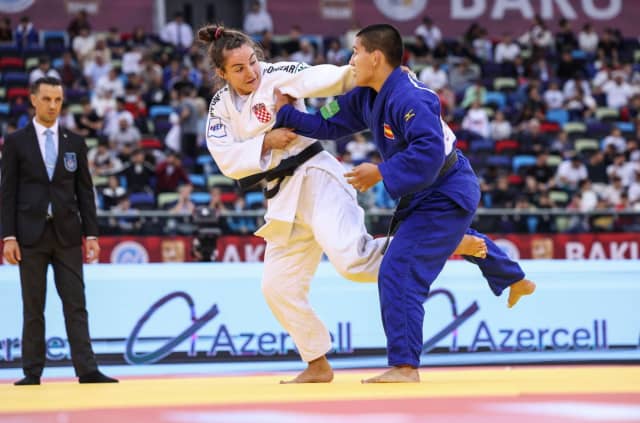Golden score fulfils a specific role in judo. It is not simply extra time but a reward for those who do everything in their control to execute ippon judo. If four minutes wasn’t enough to stretch out a gap between you and your opponent but both followed the rules, the principles and the moral code then the reward is to be able to continue.
Aside from the clock ticking, the scoreboard seemed frozen for double world champion Barbara Matic (CRO) and triple world champion from cadets and juniors, Ai Tsunoda Roustant (ESP), as they gave everything for a place in the final of the Baku Grand Slam. -70 kg remains an open category in many respects but these two fighters have been among the best, if not, the best, for some time, occupying a plethora of podium spots throughout this Olympic cycle and for Matic the one before as well.
Both judoka exhibit remarkable fitness and the ability to produce technically sound, well chosen attacks at any time, whether it be in the first minute or the 16th, as was demonstrated in Baku. We don’t often see such physical ability with most golden score contests closing in the first or second minute of extra time, one judoka becoming visibly more exhausted that the other.
Matic and Tsunoda had ashi-waza, koshi-waza, kaeshi-waza, combinations, counters and effective kumi-kata throughout and what’s more is that the referee was entirely with them. The referee allowed the athletes to control their contest, managing penalties, pauses and continuances with calm excellence, blending into the background, almost not there at all. All three judoka on the mat gave of their best and it left us with a lesson in elite judo, an unequivocal masterclass. We were riveted for the full 15 minutes and 39 seconds, barely noticing that a big part of what they showed today was that they respected the physical demands of this demanding sport.


